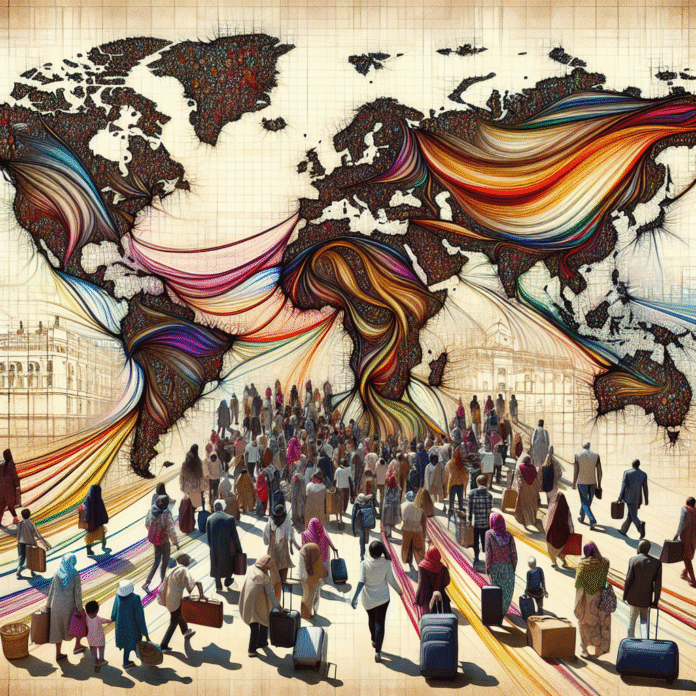Introduction
Global migration is a complex phenomenon shaped by various factors, including economic disparities, conflict, climate change, and social instability. As millions of people are forced to leave their homes, the political ramifications of this displacement reverberate across nations, challenging traditional state sovereignty and altering political landscapes. This article explores the multifaceted political impacts of global migration, emphasizing both the challenges and opportunities it presents.
The Drivers of Displacement
Migration often arises from a combination of push and pull factors. In many cases, individuals flee their countries due to conflict, persecution, or dire economic conditions, seeking safety and opportunity in more stable nations. The rise of conflicts in the Middle East, economic collapse in parts of Africa, and climate change effects, such as rising sea levels and extreme weather, have all contributed to increased migration trends.
Political Ramifications
1. Domestic Policy Changes
As countries experience an influx of migrants, they often re-evaluate their immigration policies. Nations must balance humanitarian obligations with the concerns of their citizens. In many cases, this leads to:
- Stricter Immigration Controls: Governments might impose more stringent visa regulations or increase border security to manage the flow of migrants.
- Pathways to Citizenship: On the flip side, some countries create more inclusive policies that allow for pathways to citizenship, thereby integrating migrants into the social fabric.
2. Impact on National Identity
Large-scale migration can challenge the notion of national identity. As communities become more diverse, there’s an ongoing debate regarding what it means to be a citizen in an increasingly multicultural society. This can lead to both:
- Cultural Enrichment: Migrants often bring diverse perspectives, traditions, and innovations that can enhance social and economic life.
- Backlash and Nationalism: Conversely, an increase in nationalist sentiments can occur, with political groups using migration as a scapegoat for socio-economic issues, leading to social tensions and division.
3. International Relations and Diplomatic Tensions
Migration impacts not only domestic politics but also international relations. Countries receiving significant numbers of migrants may experience shifts in diplomatic relationships based on their migration policies. Key considerations include:
- Burden-Sharing Agreements: In response to mass displacement, nations may enter into agreements to share the responsibility of hosting refugees, which can shift diplomatic alliances and create political liabilities.
- Regional Tensions: Neighboring countries may experience strain. For example, countries along migratory routes may feel pressured as they become transit points for refugees, leading to diplomatic frictions and calls for international support.
4. Human Rights Considerations
The refugee crises that stem from global migration highlight human rights issues that require urgent political attention. Governments are often put to the test:
- Protection of Vulnerable Populations: Nations are obligated under international law to protect refugees and asylum seekers, but there are frequent reports of border abuses, detentions, and denial of asylum.
- Advocacy and Activism: Human rights organizations often mobilize public opinion to hold governments accountable, influencing political discourse and policy change.
Opportunities for Political Engagement
While global migration presents numerous challenges, it can also serve as a catalyst for political engagement. This includes:
- Strengthening of Local Governance: As communities adapt to demographic changes, local governments often become more active in enhancing services and infrastructure, resulting in improved governance.
- Engagement of Diaspora Communities: Migrant populations can mobilize to influence the political landscape of both their host and home countries, advocating for policies that support their needs and rights.
Conclusion
Global migration is a defining issue of our time, shaping political landscapes in profound ways. While it presents significant challenges, including strains on resources, social cohesion, and national identity, it also offers opportunities to redefine political engagement and strengthen governance. Understanding the political impacts of displacement is crucial not only for policymakers but for citizens as they navigate this complex and intertwined global phenomenon. As nations respond to these challenges, the path forward lies in balancing humanitarian responsibilities with the need for sustainable political solutions that benefit both migrants and host communities alike.






